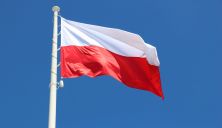By Luke Coffey NATO Secretary General Mark Rutte addressed the European Parliament last week with a clear message: Europe isn’t spending enough...
Vous n'êtes pas connecté
- English
- Français
- عربي
- Español
- Deutsch
- Português
- русский язык
- Català
- Italiano
- Nederlands, Vlaams
- Norsk
- فارسی
- বাংলা
- اردو
- Azərbaycan dili
- Bahasa Indonesia
- Հայերեն
- Ελληνικά
- Bosanski jezik
- українська мова
- Íslenska
- Türkmen, Түркмен
- Türkçe
- Shqip
- Eesti keel
- magyar
- Қазақ тілі
- Kalaallisut ; kalaallit oqaasii
- Lietuvių kalba
- Latviešu valoda
- македонски јазик
- Монгол
- Bahasa Melayu ; بهاس ملايو
- ဗမာစာ
- Slovenščina
- тоҷикӣ ; toğikī ; تاجیکی
- ไทย
- O'zbek ; Ўзбек ; أۇزبېك
- Tiếng Việt
- ភាសាខ្មែរ
- རྫོང་ཁ
- Soomaaliga ; af Soomaali
Rubriques :
 Maroc - ENG.UATV.UA - A La Une - 14/Jan 12:18
Maroc - ENG.UATV.UA - A La Une - 14/Jan 12:18
Russia’s war spending beyond budgetary capabilities, could collapse economy
Russia's total military spending far exceeds its budget capabilities and could lead to the collapse of corporations and banks, thus affecting Moscow's negotiating positions. That’s according to an article for Navigating Russia by Craig Kennedy, a former banker, who is now part of the Davis Center for Russian and Eurasian Studies at Harvard University, Ukrinform reports. Moscow is stealthily financing about half of these military expenses through significant debts, forcing banks to provide loans on non-market terms to companies that supply goods and services to cover the needs of the war, the author notes. According to him, Moscow is financing the war, first of all, from the defense budget, which analysts usually consider "surprisingly resilient." The second track is a low-profile, off-budget financing scheme that appears equal in size to the defense budget. The Kremlin is forcing Russian banks to extend preferential loans to war-related businesses on terms set by the state. Since mid-2022, this off-budget financing scheme has helped drive an unprecedented $415 billion surge in overall corporate borrowing. From $210 to $250 billion of this surge consists of compulsory, preferential bank loans extended to defense contractors—many with poor credit—to help pay for war-related goods and services. Initially, this off-budget defense financing scheme proved advantageous to Moscow by enabling it to maintain its official defense budget at manageable levels. That misled observers into concluding—incorrectly as it turns out—that Moscow faces no serious risks to its ability to sustain funding its war. More recently, however, Moscow’s heavy reliance on its off-budget, compulsory lending scheme has begun to cause serious, adverse consequences, Kennedy points out. It has become the main driver of inflation and rising interest rates, and is also creating the prerequisites for a systemic credit crisis. For Moscow, credit event risk—with its seismically disruptive potential—will be of far more immediate concern than slow-burn risks like declining GDP. Moscow now faces a dilemma: the longer it puts off a ceasefire, the greater the risk that credit events—such as corporate and bank bailouts—uncontrollably arise and weaken Moscow’s negotiating leverage. According to Kennedy, this will accordingly give Ukraine and its allies unexpected leverage in potential negotiations. As reported earlier, Russia's economy and war efforts are increasingly strained, casting doubt on Vladimir Putin's ability to sustain the war in the long term. Read also: Zelenskyy: Ukraine ready to hand over DPRK POWs in exchange for Ukrainian soldiers held in Russia The post Russia’s war spending beyond budgetary capabilities, could collapse economy appeared first on Freedom.
Articles similaires
Russia’s Role In A Post-Assad Syria – Analysis
By Rajoli Siddharth Jayaprakash Former Syrian ruler Bashar al-Assad was Russia’s crucial ally in West Asia, with Russia taking an active role...
The Fall Of Syria’s Assad Regime Is Bad News For Libya – Analysis
Russia’s apparent fast-tracking of plans to establish a military hub in Libya could worsen that country’s protracted conflict. By Peter...
EU's top diplomat backs Trump call to boost defense spending
by Max DELANYThe EU's top diplomat Kaja Kallas said Wednesday that the bloc must heed US President Donald Trump's demand to spend more on defence, as...
Ukraine has capacity, capabilities to produce own missile complexes – Syrskyi
Ukraine has the capacity and capabilities to create its own missile complexes and air defense systems. Commander-in-Chief of Ukraine’s Armed...
German defense chief says peacekeepers in Ukraine not ruled out
German Defense Minister Boris Pistorius believes the German military could take part in ensuring the security of the demilitarized zone in Ukraine...
Poland supports Donald Trump’s call for NATO countries to allocate 5% of GDP to defense spending, even if achieving this goal takes a decade, – Financial Times
Kosińska-Kamiś stated that Poland could serve as a “transatlantic link” to bridge the gap between Trump’s challenge and its implementation...
EU’s largest party promotes increasing defense spending to 3% of GDP in two years
The EU should strengthen its defense capabilities, the common arms market, and spend at least 2% of GDP on defense in 2025 and 3% by 2027. After a...
EU delivers first EUR 3B from G7 loan to Ukraine
The European Union has made the first payment of EUR 3 billion as part of its contribution to the G7 loan package for Ukraine. As reported by...
Kazakhstan Rapidly Moving To Become Dominant Naval Power On The Caspian – Analysis
Three developments have opened the door for Kazakhstan’s growing ability to challenge the dominance of Russia’s Caspian Flotilla on the inland...
Les derniers communiqués
-
Aucun élément






